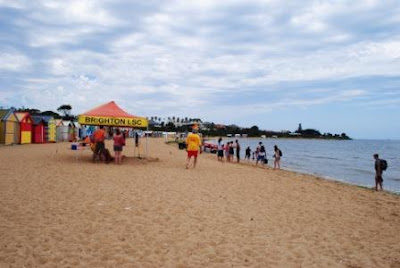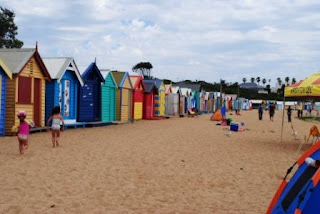Welcome the new year.
For this, we would like to share this thought, by Prof Shad Saleem, for us and to friends in the same profession.
Wednesday December 29, 2010
Reflecting on the law
By Shad Saleem Faruqi
While most of our law books draw from ‘wisdom’ from the West, there is much about jurisprudence to be learnt from the great Asian civilisations.
"WITH the end of the year drawing nigh, thoughts turn to the state of legal education in this country.
Many advances have been made since the inception of the first local law programme at the University of Malaya in 1972. However, some debilitating drawbacks remain. Legal education in this country is too profession-oriented and not sufficiently people-oriented.
It is text-book based rather than experience-based. It is too West-centric. Only the last issue will be addressed in this article.
Course content: Despite 38 years of experimentation, the structure and content of our courses, the choice of core subjects, the categories of thought, the fundamentals, the methods of analysis and research, the history of each subject, the books and the icons all remain Western.
Legal education today is as much a colonial construct as it was during the days of the raj.
Yusef Progler points out that most university courses in Asia follow a similar trajectory. We first identify the great white European or American men of each discipline and then drill their theories and practices as if these were universal.
Centuries of enlightenment in Japan, China, India, Persia and the Middle East is totally ignored.
It is as if all things good and wholesome and all great ideas originated in the crucible of Western civilisation and the East was, and is, an intellectual desert.
> Jurisprudence: In legal philosophy, for example, a book on American or English legal thought is referred to as “jurisprudence”. In contrast, a book on Islamic, Chinese or Hindu legal thought is described with the prefix “Islamic”, “Chinese” or “Hindu” jurisprudence. The assumption is that Western ideas are universal whereas ours are merely parochial.
A typical course on jurisprudence in a Malaysian university begins with Plato, Aristotle, Locke, Austin, Bentham, Hart, Kelsen, Pound, Weber, Ehrlich, Durkheim, Marx, Olivecrona etc.
Titles written by scholars and thinkers from Asia, South America and Africa are nowhere to be found.
The Mahabharata, the Arthashastra, the Book of Mencius, Analects of Confucius and the treatises of Ibn Khaldun, Ghazali, Ibn Rushd, Mulla Sadra, Jose Rizal, Benoy Kumar Sarkar, Yanagita Kunio and Naquib al-Attas do not appear in our syllabi.
In Austinian fashion, the concept of law is tied to the commands of the political sovereign even though most Asians and Africans feel the pull of religion and custom and regard them as part of the majestic network and seamless web of the law.
> Categories of law: The rigid compartmentalisation of knowledge developed in Europe in the 19th century is preserved. As in the West, we separate law from morality, public law from private law and crime from tort even though such artificial dichotomies are alien to our traditions and are often impediments to justice.
In most Asian and Middle Eastern systems, morality is legalised and legality is moralised. The law of crime is also the law of tort. Law relating to rights and duties applies equally in public and private spheres. Such a holistic approach has positive implications for human rights.
> Public law: Generations of students are uncritically led to believe that the seeds of constitutional and administrative law were planted in Europe and North America by such historical documents as the Magna Carta 1215,Declaration of the Rights of Man and the Citizen 1789 and the United States Declaration of Independence 1776.
What is ignored is that the ideas of limited government and constitutionalism were born in the religious doctrines of the East.
Taking Islam as an example, we can point to the fact that the denial of state sovereignty in Islamic jurisprudence preceded Locke’s and Rousseau’s idea of the limits on state sovereignty by hundreds of years.
The idea of government as a trustee is mentioned in the Holy Qur’an (4:58). The citizen’s duty to obey the law is conditional to the duty of the ruler to obey the Creator.
Locke and Rousseau, Gandhi and Martin Luther King built on this idea to propound the theory of civil disobedience.
In Islamic theory, political as well as socio-economic rights are given legitimacy.
Prophet Muhammad’s sermon at Arafat is one of the world’s greatest human rights declarations. More than 1,400 years ago he spoke about liberty and property, racial equality, women’s rights and the ruler’s subjection to the law.
If his words had been uttered by some Western luminary, they would have adorned the walls of law schools all over the world.
In the Islamic criminal process there is a legal presumption of innocence. Evidence of agents provocateur cannot be used. Religious tolerance is required and pluralism is permitted (2:256, 109:1-6, 10:99). The concept ofshura (3:159) or consultation paves the way for a whole regime of consultative processes.
Modern principles of administrative law like natural justice and proportionality have their basis in the Holy Qur’an.
The ombudsman principle attributed to the genius of the Scandinavians was known to Islam through the system of Hisba, the office of the Muhtasib and the existence of Mazalim courts.
Islam’s concept of the universal ummah is in line with the process of globalisation and the growing movement for international citizenship.
The subject of alternative dispute resolution parrots a discourse on arbitration, conciliation and mediation and ignores many indigenous or informal institutions and procedures for resolving discord that existed in our history and can be revived.
The course on Law and Economics studies emerging international protocols but not the clear injunctions in Islam, Christianity, Hinduism and Buddhism on environmental and consumer responsibility.
> International law: The syllabi of public international law courses fail to mention that long before modern humanitarian law built protection for civilians, non-combatants and prisoners of war, many Eastern systems like Islamic international law had already worked out a set of principles for the conduct of war.
Some of these principles exceed the standards of the venerated Geneva Conventions.
Sadly, Malaysian as well as Asian legal education fails to recognise that many of the law’s crowning glories actually originated in the East. Obviously colonialism has left its indelible mark.
> Call for action: There should, therefore, be a concerted effort to re-educate colonised minds; to revisit our syllabi; to substitute imported mental baggage with our own treasury of thoughts.
This indigenisation of our syllabi is not meant to shut out the West but to give to our students a bigger picture of knowledge and to increase their choices.
In the background of pervasive Western intellectual domination, indigenisation would assist a genuine globalisation!
Academic Boards of Faculties, University Senates and accreditation authorities may wish to go beyond form to the actual content of our syllabi and to insist that our garlands of knowledge must be built with flowers from both Eastern and Western gardens.
A helpful site for some Third World titles is www.multiworld.org. There is no dearth of scholars from the South who could be co-opted to advise us on how to tackle the problem of educational enslavement."































